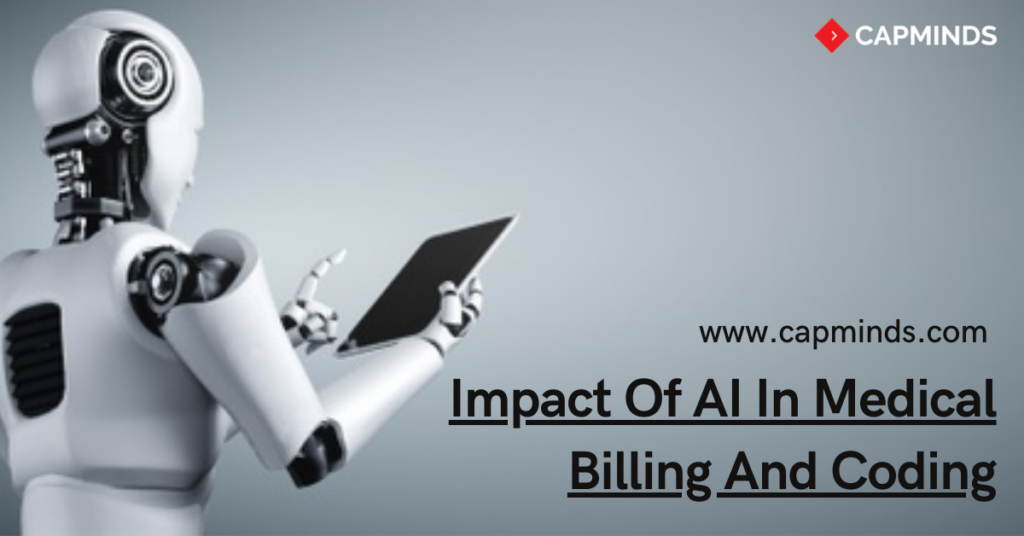Impact Of AI In Medical Billing And Coding
The future of medical billing and coding in the age of artificial intelligence will be really surprising. Do you have any idea about how AI will impact your practice revenue cycle? In this article, we explain to you the real benefits of the impact of AI in today’s medical billing system.
The Role Of AI in Medical Billing and Coding
The use of artificial intelligence in the medical billing and coding industry can help healthcare organizations facilitate their billing procedures while minimizing costly errors.
AI-driven technologies, such as machine learning and natural language processing (NLP), can interpret and organize a large amount of data quickly and accurately. As such, they’re perfect solutions for identifying and extracting data from EHR, then matching the information with relevant medical codes.
In addition, these technologies can contextualize unstructured data by analyzing information from various sources and connecting the dots. For instance, an AI program can arrange data from different records into a logical timeline to make sense of disparate events, diagnoses, and procedures, minimizing coding and reporting errors.
RELATED: THE ADVANCED GUIDE TO ICD-10 CODING SYSTEM IN MEDICAL BILLING
The Benefits of AI in Medical Billing And Coding
AI-driven technologies will become widely used by healthcare organizations to improve the cost-efficiency of their billing and coding processes thanks to their many advantages:
- Automating the coding process to deliver a scalable solution that is less dependent upon the availability of skilled billing professionals.
- Improving cash flow by ensuring that accurate patient statements are issued promptly.
- Reducing standard work hours of administrative staff, which can help improve the quality of their work in other areas.
- Eliminating costly human errors, not only by matching EHR data with the right medical codes but also through system integration so that a minimal amount of information needs to be manually keyed into different software.
- Performing audits in real-time to eliminate the problem of discovering an error too late in the process for it to be rectified without incurring high costs.
- Automating repetitive and recurring menial tasks so professional coders can focus on resolving complex issues that require their skills and expertise.
- Connecting unstructured data and extracting relevant information from various EHRs within a healthcare organization so that integrated patient statements can be generated to streamline the payment process and encourage patients to pay their bills faster.
- Reducing operation costs associated with conducting repetitive analyses and billing procedures manually.
- Reducing the number of customer support queries or disputes related to patient statements to lower operating costs.
- AI-driven technologies have the capability to self-improve as they perform more tasks. The system will become more sophisticated over time and continue to narrow margins of error.
AI Will Streamline Medical Billing Workflows
The most significant impact on a medical biller’s day-to-day may result from deep learning of users’ interaction with EHR and billing software. Using artificial intelligence to learn a user’s habits, anticipate their needs, and display the right data at the right time is a top priority for nearly all of the major health IT vendors.
Automatically retrieving and manipulating information has the potential to drastically reduce labor spent on manual billing tasks and allow staff to make better decisions about the next steps for denial resolution.
AI Improves Medical Coding Accuracy
A key feature of AI will be its ability to analyze text and the spoken word. Systems will be able to learn the language for procedures and diagnosis and assign accurate codes. This capability could have a profound impact after code set updates to ensure correct codes are used and documentation is compliant, reducing the transition that happens with coding updates. Imagine how much easier the transition from ICD-9 to ICD-10 would have been if AI had been used!
Ai Eliminates Pre-Authorization Denials
One of the most valuable aspects of AI will be its ability to make conclusions and predictions. Today, it can take hours, sometimes even days, to get a pre-authorization from a payer. Future systems could be able to analyze a patient’s health data and determine the medical necessity of a procedure within a few seconds. The good news for medical billers is that an automated process will ensure authorization has been obtained and its corresponding data captured, greatly reducing (or eliminating) pre-authorization denials due to lack of an authorization number.
RELATED: HOW TO PREVENT MEDICAL BILLING AND CODING ERRORS?
AI Improves Customer Support
AI technology will be used across all industries, not just healthcare. Customer service advances could considerably influence the way patient communications are handled; for example, bots that are utilized for patient interactions such as appointment scheduling and collecting payment. A major benefit for providers and billers is that the process can be standardized, significantly reducing the incidence of difficult patient interactions about billing and potentially improving the relationship patients have with billing staff.
CapMinds Medical Billing And Coding Services
CapMinds offers the best medical billing and coding services to simplify the medical billing process for patients and practice. Our expert billing team is here to provide better relationships with patients while also increasing the practice revenue. Schedule a free demo today and get started.




